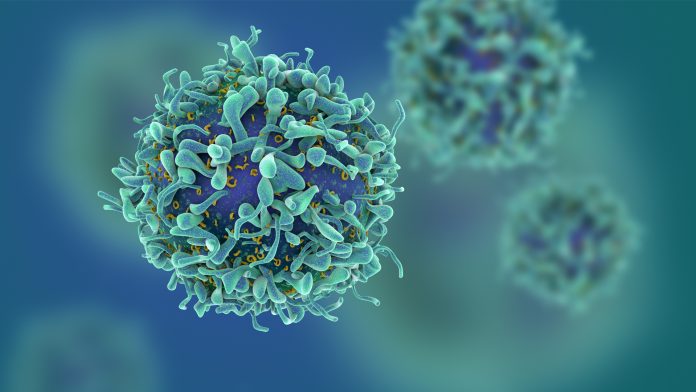
Including data from over 8,000 people, research suggests that there is no link between cancer and tumour necrosis factor inhibitor (TNFi) use in psoriatic arthritis.
The results of a study presented at the Annual European Congress of Rheumatology (EULAR 2019) suggest that overall cancer risk is not linked to tumour necrosis factor inhibitor (TNFi) use in psoriatic arthritis. The study includes data from over 8,000 individuals with psoriatic arthritis from four Nordic countries.
Analysing the risk of primary cancer
The study analyses the risk of primary cancer in over 8,000 tumour necrosis factor inhibitor-treated psoriatic arthritis patients from Sweden, Denmark, Iceland, and Finland.
Results demonstrated no increase in risk of all cancer, as well as site specific cancers including colorectal, lung, malignant melanoma, pancreas, brain, female breast, endometrial, and prostate.
“TNF inhibitors have a well-established efficacy and safety profile in patients with psoriatic arthritis and we welcome these data which contribute to our understanding in the complex area of cancer risk,” said Professor Hans Bijlsma, President, EULAR.
There was a significant increase in malignant lymphomas observed within the trial. However, it is not clear if this is due to the psoriatic arthritis disease or the TNFi treatment. There is limited data on lymphoma risk in psoriatic arthritis, however, an excess risk has been reported for several other chronic inflammatory rheumatic diseases with a well-established doubled average risk in patients with rheumatoid arthritis.
Evidence that tumour necrosis factor inhibitor does not increase cancer
Professor Lene Dreyer, Aalborg University Hospital, Denmark, explains: “Our study provides convincing evidence that the use of TNF inhibitors does not increase the risk of overall cancer in patients with psoriatic arthritis.”
“Further analysis is needed to assess whether the observed increase in malignant lymphomas is due to the psoriatic arthritis disease or the TNFi treatment.”
What do you know about psoriatic arthritis and tumour necrosis factor inhibitors?
Psoriatic arthritis is a chronic inflammatory disease that affects the joints, causing pain and disability. The disease often causes swelling of the fingers and toes, mainly because of joint inflammation.
Tumour necrosis factor inhibitors have been shown to be efficacious in psoriatic arthritis. However, tumour necrosis factor (TNF) also plays a complex role in the development and progression of cancer and so the use of TNFi may theoretically increase the risk of tumour development.






















